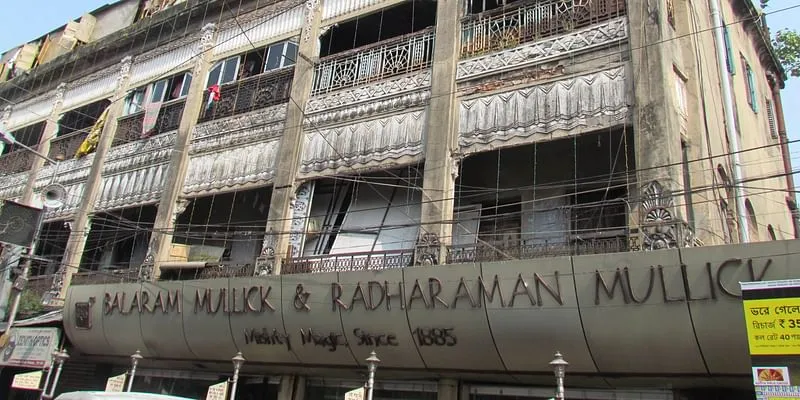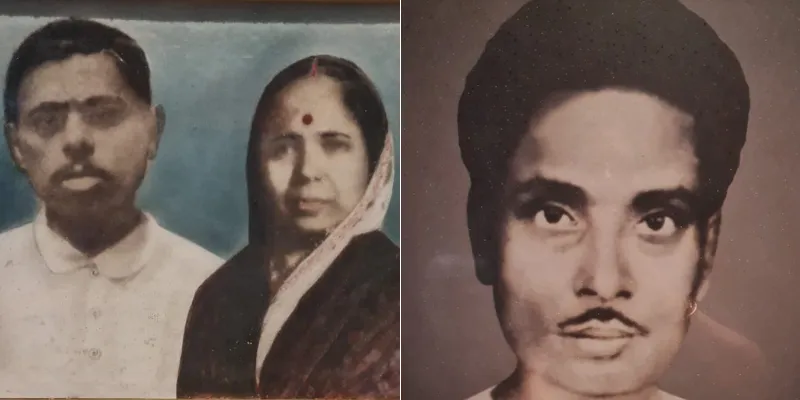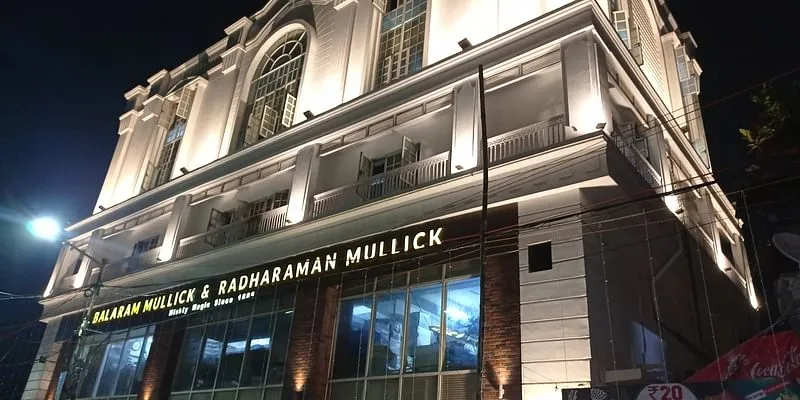Meet the Mullick who is carrying on a ‘sweet’ business legacy of over 130 years in Kolkata
The Balaram Mullick and Radharaman Mullick sweet shop was started in 1885 in Kolkata. After 137 years, the fourth-generation entrepreneur Sudip Mullick is aiming to take the brand international and make it synonymous with the City of Joy.
It is that time of the year when all of Kolkata is decked up for Durga Puja. There is a festive buzz in the air that’s hard to miss. The iconic sweet shops of the city are particularly busy, preparing mouth-watering sweets and delicacies that are in high demand during the season.
Did you know that there are around 1 lakh sweet shops in Kolkata? While it’s hard to pick a favourite, Balaram Mullick and Radharaman Mullick (BMRM) is a prominent shop that many swear by. SMBStory caught up with Sudip Mallick, the fourth-generation entrepreneur of this 137-year-old family business, who is eager to make BMRM synonymous with Kolkata across the world.

An old Balaram Mullick and Radharaman Mullick sweet shop
Making of the legacy sweet shop
The history of this heritage brand dates back to 1880 when the founder of BMRM, Ganesh Chandra Mullick, moved to Kolkata from the Konnagar town in search of work. He worked in a small sweet shop for years. But he was not a man who could confine himself, for he had big dreams.
Having learnt the skill of sweet making on the job, Ganesh spent months researching the idea of opening his own shop. Sudip recalls that he has heard stories of his great grandfather walking miles to find a good location for setting up a shop.
Ganesh was finally able to find a 450-sq ft space on rent at Bhowanipore (North Calcutta) in 1885 and set up a sweet shop. Sudip says it was one of the busy locations of that time, which housed Indian nationalist Subash Chandra Bose and educator Ashutosh Mukherjee.
Since then, the legacy of BMRM has continued unabatedly.
After Ganesh, his brother Balaram Mullick and his son Radharaman Mullick ran the shop, after which Sudip’s father Pradip Mullick (son of Radharaman) took over the reins.

(L-R) Balaram Mullick with his wife and Radharaman Mullick
Moving with the times
“For more than 100 years, we were operating out of a single shop in Bhowanipore. It was after 2003 when I stepped into the business that we started expansion,” says Sudip.
The new-generation entrepreneur brought with him new ideas and innovation. Sudip had joined the business after completing a hotel management course from Bhubaneshwar. This helped him try out new recipes and innovate with the older ones.
“Sandesh is a famous Bengali sweet but we were the first ones to introduce it in a baked form. There was no concept of baked mithais, and, when we introduced it, it created a lot of buzz. We even introduced baked rosogollas and it is one of the hottest selling across our shops,” asserts Sudip.
For several years, BMRM operated in a traditional way. Every sweet was made manually. However, as it looked to scale up, the brand had to step up production. Thus, machinery automation was introduced by Sudip around 2005. Today, machines from Japan, Taiwan, and China are used for mixing, kneading, beating, and portion controlling.
“Automation also helps in increasing and maintaining quality standards. We have two factories now where the production takes place; out of the two, our main factory spans 3,000 sq ft. We are coming up with one more factory which will focus on quality testing; you can say it will be just like a lab,” explains Sudip.
Sudip has also revived many old Bengali sweet recipes that were dying. One of them is patishapta pitha, which is made of rice. He says that many people queue up to get this mithai from his shop.
BMRM has 15 shops across Kolkata. Its flagship store of 11,000 sq ft is in Bhowanipore. Sudip plans to open five more shops, including one in Howrah, in the next three years.
The brand boasts of 150 varieties of sweets and snacks. Each store witnesses a billing of 500-1000 sweets and snacks every day.
BMRM also undertakes bulk orders for weddings across India, apart from catering to online orders from all over the country.

A revamped store of Balaram Mullick and Radharaman Mullick
USP of Bengali sweets
Sudip says that 99% of the sweets in BMRM shops are made from milk.
“Bengalis use milk a lot for making sweets. For several years, there was no mention of kaju katli, pinni, or even soan papdi in the region. It is only after trends changed, when people started migrating, that Bengali sweet shop owners started making these mithais,” says Sudip.
Tough times during COVID-19
Sweet shop owners in Kolkata had a tough time during COVID-19. Business was low during the lockdown period, Sudip recalls. He says only 10-20% business was happening, through Swiggy and Zomato. Gradually, things started getting better and business was back on track.
Standing tall
BMRM is more than a sweet shop for its customers. Debolina Biswas, who now lives in Bengaluru, craves the baked rosogollas from BMRM. “The sweet shop is all things nostalgia and Kolkata. It’s a reminder of the good old college days when a visit to the store was all it took to turn a bad day good. I introduced my parents to Balaram Mullick and Radharaman Mullick when I was in college. And they have to visit the shop every time they are in Kolkata," she says.
Sudip has taken the legacy of BMRM forward in an admirable way but he realises the responsibility he is shouldering.
“We are one of the favourite brands of our people but staying here is an opportunity with a lot of responsibility. Every customer comes with an expectation. It feels very nice, but to be able to
fulfil it is always a pressure,” he admits.
Talking about the brand’s future prospects, Sudip says he has no plans to expand in India, as he wants to keep the legacy of BMRM in Kolkata and the surrounding areas. But his big vision is to go international and expand to Dubai and New Jersey and make BMRM synonymous with Kolkata.
“Just like people know the Taj Mahal from Agra, people should know us, BMRM, from Kolkata,” signs off Sudip.
(The story was updated to correct a factual error.)
Edited by Swetha Kannan







